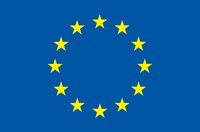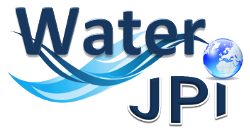Press Release: International Scientific Working Group highlights the need to address escalating levels of contaminants of emerging concern in our waters which pose a major risk to our health
The protection of our environment and natural resources is crucial in today’s society. A major focus is on climate change, mitigation and adaptation – a core issue of which is the availability, quantity and quality of our water resources. However, millions of people who receive drinking water every day are at risk from, amongst other factors, animal and human waste, pesticides, emerging contaminants, risks from “established” contaminants, aged water supply infrastructures, and sub-optimal water management.
Ever more chemical constituents are in use – population growth has fuelled the use of sanitary, household and personal care products, advanced medicines and therapies, and intensified food production. Over 4000 new substances are being added daily to the Chemical Abstracts Service (CAS) alone. In particular, contaminants of emerging concern (CECs), contaminants which are not commonly monitored but are suspected to have adverse ecological and human health effects, can end up in wastewater by application and use. Existing water treatment plants do not remove all CECs from wastewater, and can change the chemical structures of others, which are then released into the environment. A substantial revision of current legislation is required, which should introduce proactive measures to account for these escalating contaminants and ensure a sustainable water cycle with water suitable for reuse, for the benefit of the environment and the public.
Leading national experts have been brought together by the Water Joint Programming Initiative (Water JPI) to collaborate in a Knowledge Hub focused on Contaminants of Emerging Concern (KHCEC), which seeks to “address knowledge gaps as well as to consolidate knowledge regarding the behaviour of emerging contaminants in the environment…..and their long-term impact on the health and lives of ecosystems and citizens”. To that end, the hub has just published a “Stakeholder Brief” providing an overview of current knowledge of CECs, detection methods and treatment options, with key messages to address these issues going forward. It is hoped that the brief will stimulate debate among water stakeholders and encourage multi-stakeholder collaboration to bring about change. In addition to the brief, the hub will release infographics via social media channels in the coming weeks to invite conversation with citizens on the issue.
“It is crucial to act as a knowledge broker in order to tackle this challenge, informing policymakers and other stakeholders of the latest science-based findings, including new knowledge and innovations” said Dominique Darmendrail, Water JPI Coordinator from the French Research Funding Agency, ANR.
As the KHCEC work progresses into its next phase, this newly developed resource and the latest updates from the group are available on the Water JPI website (waterjpi.eu/implementation/thematic-activities/water-jpi-knowledge-hub-1/water-jpi-knowledge-hub-on-contaminants-of-emerging-concern).
For more information, please visit the Water JPI website or the Water JPI Twitter page (@WaterJPI).
Notes for Editors
The Water JPI has received funding from the European Union’s Horizon 2020 Programme for Research, Technological Development and Demonstration under Grant Agreement n°689271 (WaterWorks2015). We also wish to acknowledge the invaluable contribution from all of the invited workshop speakers and attendees, the WaterWorks2015 ERA-NET Cofund partners, the Water JPI Governing Board (GB), as well as the European Commission funding.
The Water JPI is dedicated to tackling the ambitious challenge of achieving sustainable water systems for a sustainable economy in Europe and abroad. It realises this through a multi-disciplinary approach, which includes economic, ecological, societal and technological considerations. The Knowledge Hub on Contaminants of Emerging Concern (KHCEC), established in 2018, seeks to “address knowledge gaps as well as to consolidate knowledge regarding the behaviour of emerging contaminants in the environment (water, soil, air, living organisms) and their long-term impact on the health and lives of ecosystems and citizens”.
As of March 2019, the Water JPI membership included a total of 23 full member countries and three observer countries, which collectively represent 88% of European public research, development and innovation investment in water resources. Eleven of them are contributing to the KHCEC implementation by providing support to Seed Group members.
The aim of the Water JPI Knowledge Hubs is to build a network for selected research groups and which is targeted at stakeholders. The network will, within a specific research area, establish a critical mass of research and technological excellence, integration and sharing of knowledge, infrastructures, data and modelling tools, training and capacity building, in addition to improved communication and networking with stakeholders and the scientific community.
This output reflects only the views of the Water Joint Programming Initiative, and the European Commission cannot be held responsible for any use that may be made of the information contained herein.



